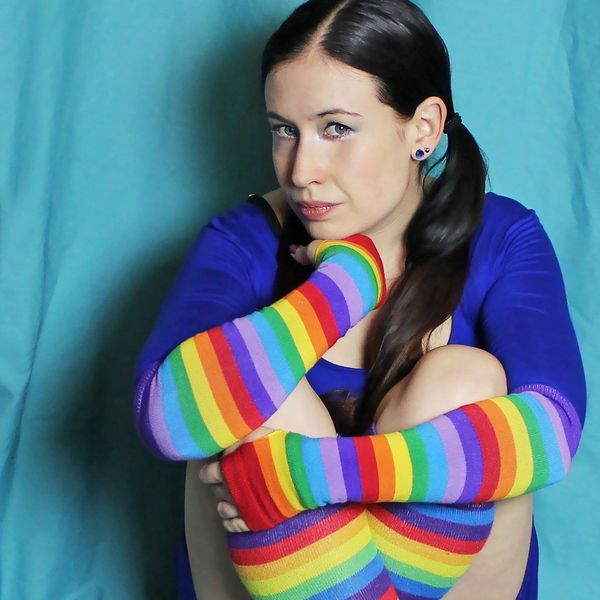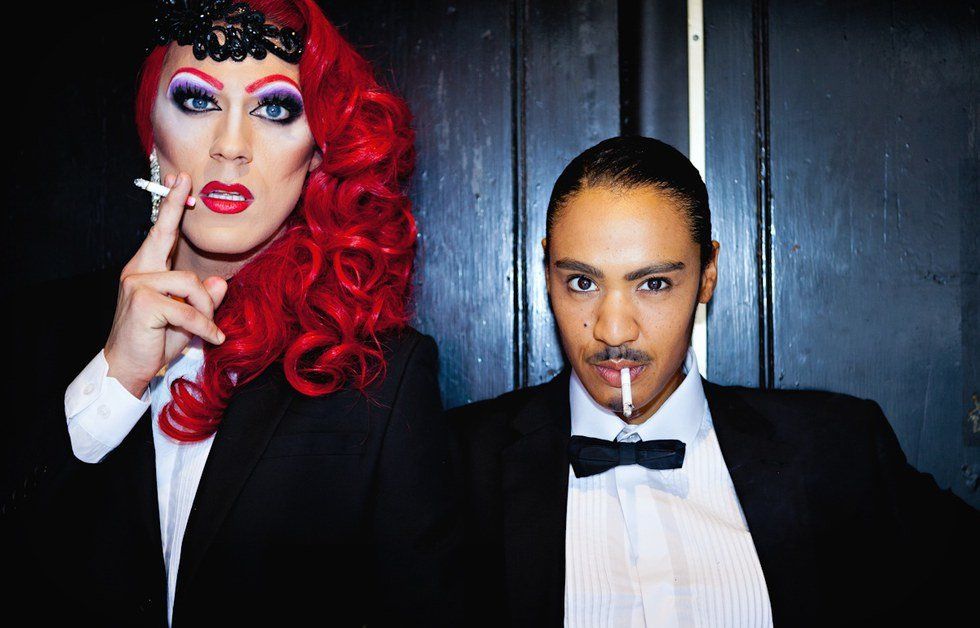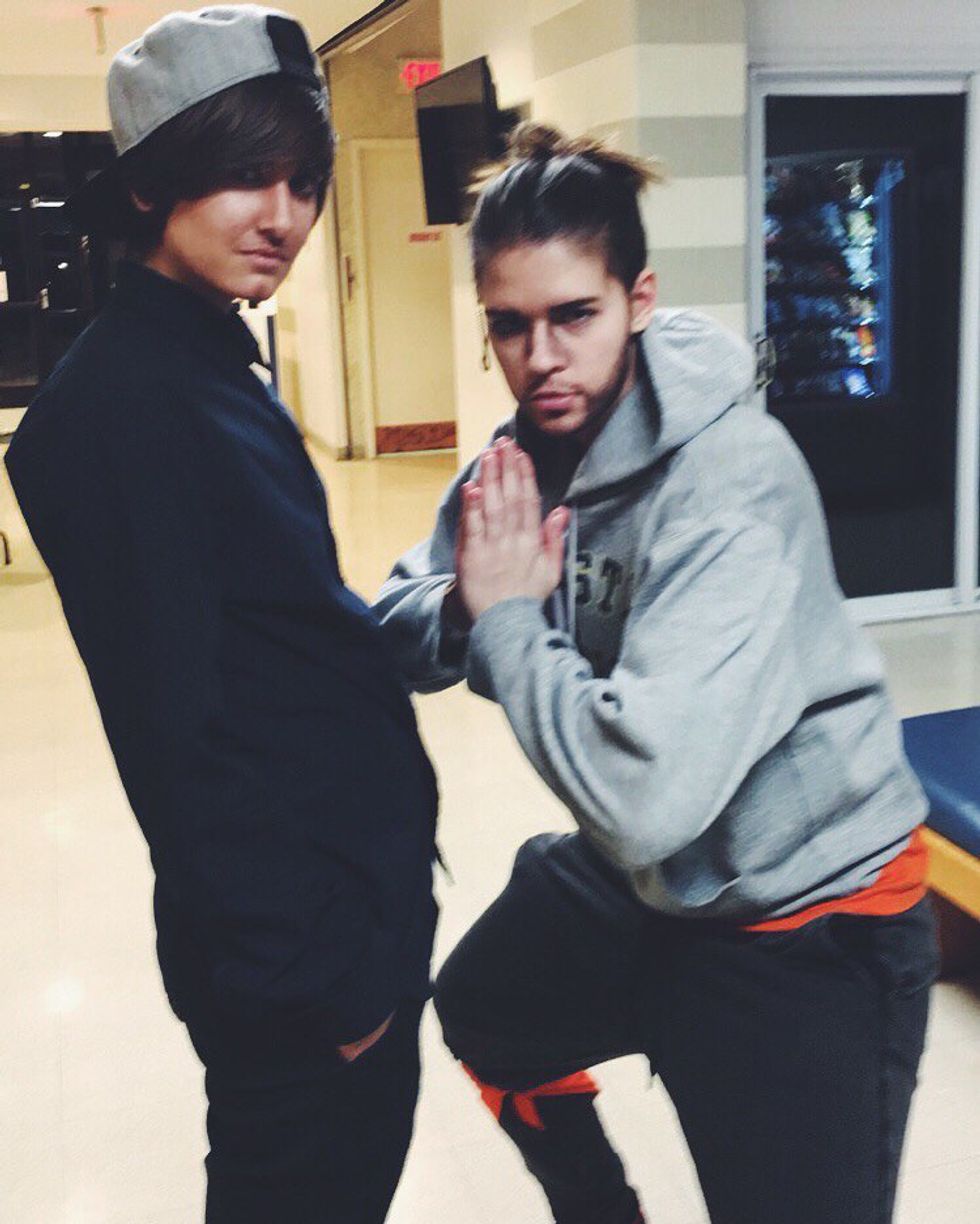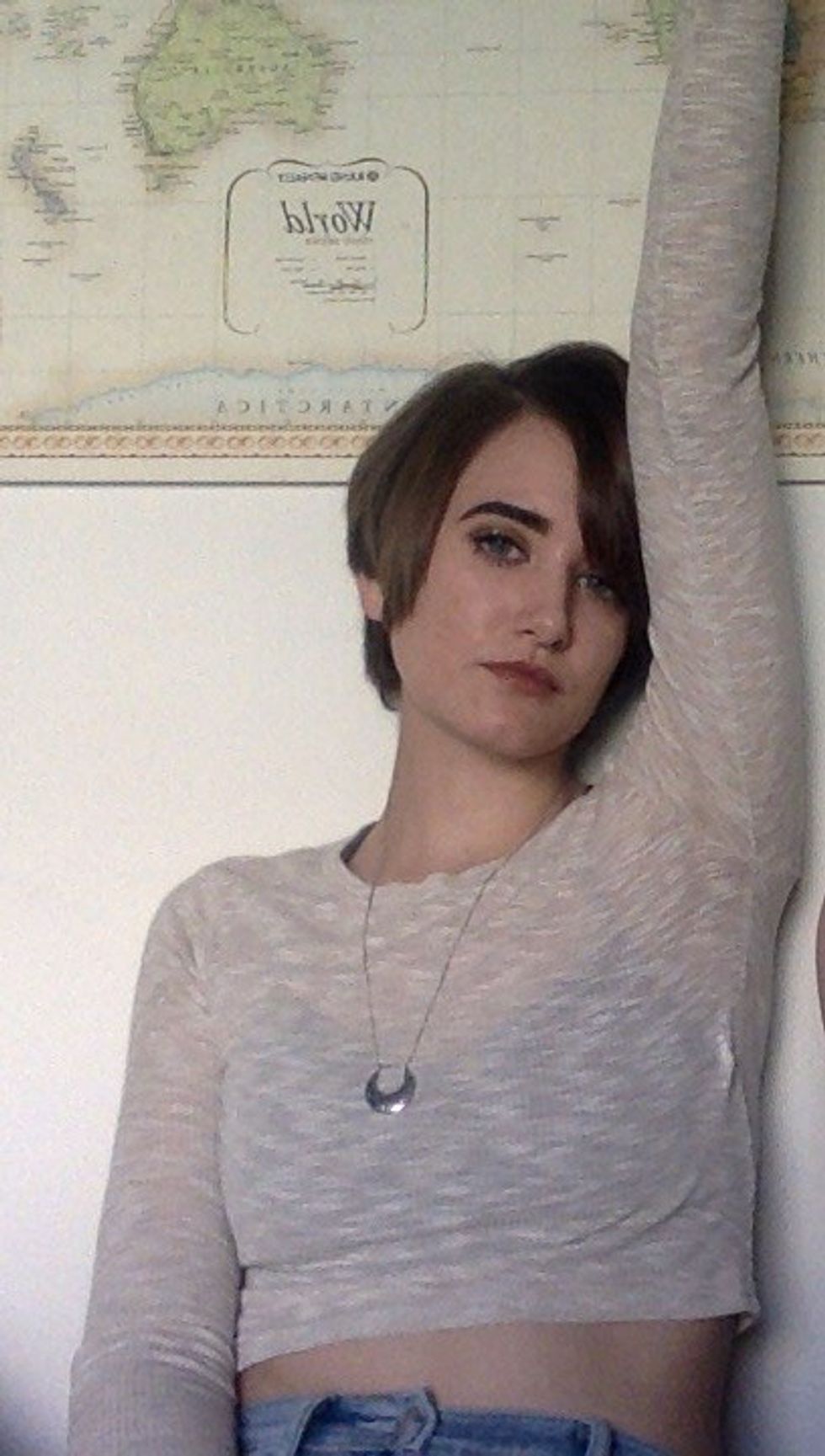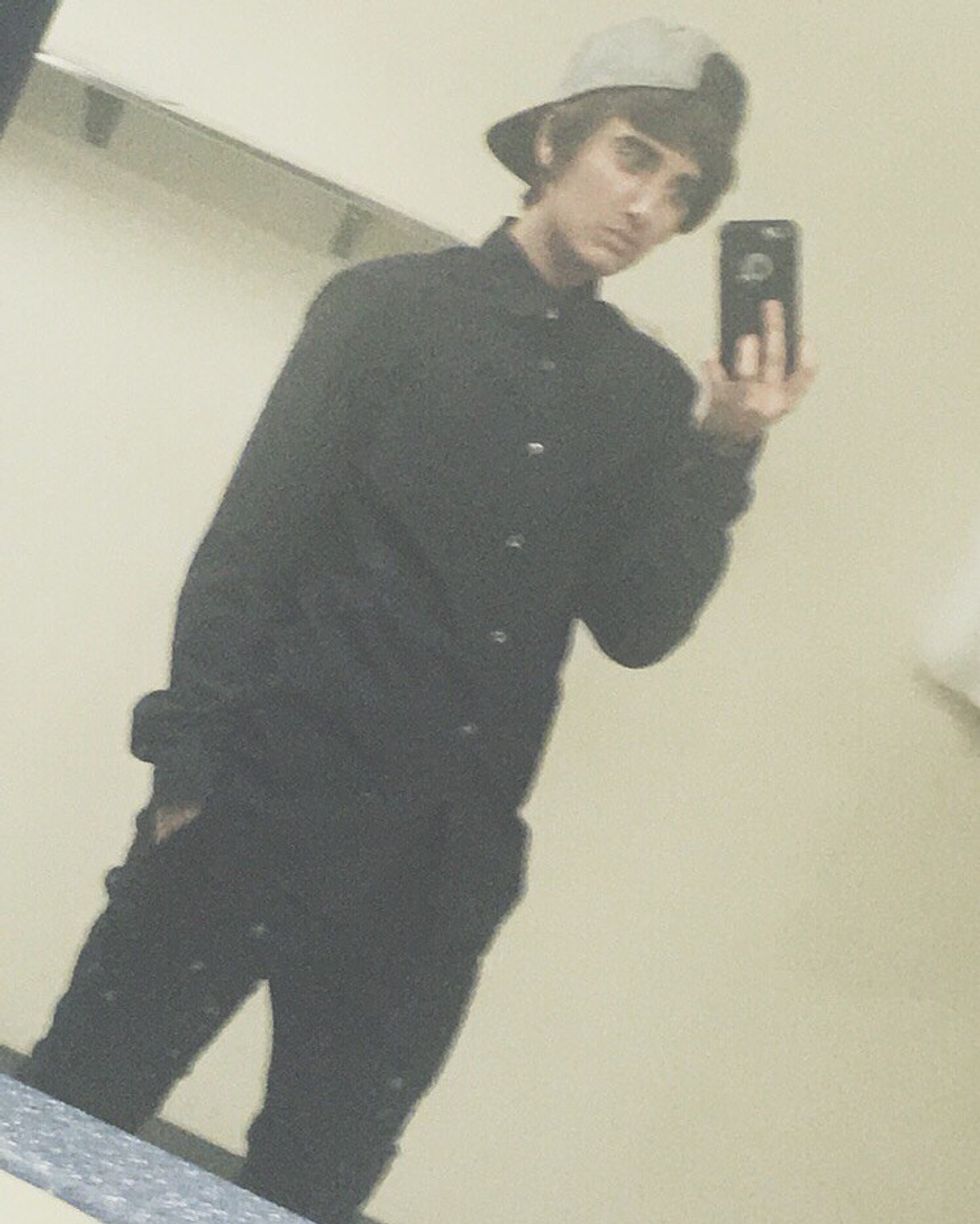Although my university is tiny, located in a Missourian suburb, and often the home of homophobic and transphobic comments, we have a twenty-year tradition of putting on a pretty big annual drag show.
I had never sought out drag shows before moving here, although many of my friends back home attended them regularly. In the few months prior to Drag Ball, though, I attended a few shows and thought they were a blast. I love performing, especially musical theater, and I don’t often get the opportunity to pursue it since it is not my major. I am also on the board of the LGBTQ+ club that put the whole event together, and I am endlessly intrigued by gender studies and gender performance. For these reasons, I said “screw it,” and decided (very last minute) to be a drag king.
I went into the process feeling extreme ambivalence toward the entire concept of drag, and I came out of it feeling even more torn. On one hand, defying normative gender performance for a night and embodying a character whose gender does not match yours seems to be, and often is, incredibly rebellious and disruptive to society (societal disruptions=awesome in my book). On the other hand, though, drag is very capable of reinforcing gender binaries: it mostly consists of hyper-masculine male performance and hyper-feminine female performance. This specific act of gender play doesn’t really leave any room for gender performance which falls in the middle of the spectrum and does not acknowledge folks who do not identify as strictly male or strictly female. Which is not very cool. Drag performers are also often equated with transpeople, which is problematic. Not to say that there aren’t any transpeople who are drag queens/kings because there are. But, being trans and the act of doing drag are two very different things. If this difference is not acknowledged, people can get the idea that being trans is the same as doing drag—that being trans is merely, for example, men wearing dresses and makeup, which is obviously not true. RuPaul, who is a drag queen famous for the reality television show “RuPaul’s Drag Race,” and is often seen as the face of mainstream drag, has made more than a few overtly transphobic comments. RuPaul’s show also, for a time, had a segment entitled "Female or Shemale,” in which contestants had to determine, from pictures, whether or not certain women were “biologically female.” This segment was incredibly disrespectful and transphobic, and undermined transpeople and their identities. Some laughed it off and said it was all in good fun, but others were horrified, and the segment was discontinued. For these reasons, I think it’s pretty hard for the fun of drag not to be overshadowed by the many ways in which it is problematic.
My drag experience was a fairly positive one, though. The main reason I thought I would be successful as a king was because of the Justin Bieber haircut I was sporting. So, naturally, I felt my only option for a drag personality was an imitation of Justin: I became Justin Babe-er (hehe, get it?) I spent close to an hour studying YouTube videos of his live performances, memorizing his gestures and the way he carries himself, which was sort of fascinating. I came upon a video of him performing at a recent Victoria’s Secret Fashion Show during my investigation, and I was pretty disgusted. The entirety of his performance revolved around watching and reacting to the bodies of the models who strutted past him. The audience erupted with excitement whenever they could tell that he was checking out a model’s butt (and objectifying her in his head). Although I learned a lot that helped me in my performance of masculinity from watching these videos, I also experienced an extreme amount of shame that I was about to voluntarily embody this dude. But, I had already committed to being a king, so I had to swallow the disgust inspired by his male gaze and perform anyway.
Getting ready for the show took almost no time at all. I borrowed a friend’s clothes, and not much makeup was necessary (other than a killer five o’clock shadow) because the 2010 J-Biebs look I was going for is pretty pre-pubescent and lacks many physically male characteristics.
Before:
After:
After I was satisfied with the little work I had done to create my physical persona, I was ready to perform. Being backstage with the hosts of our drag show, two of St. Louis’s most famous professional drag performers (Rydyr and Siren), I was kind of pooping my pants. After I stepped on stage and was blinded by the lights, it was still hard for me to let go and really commit to my character. Even as an actor, this was uncharted territory for me, since I had only ever embodied people of my own gender on stage. I heard the crowd getting into my performance of “Boyfriend” and started to receive a few tips here and there, and from that point onward, it was a total rush. I felt so indescribably powerful in my newly masculine body, my pants sagging and my breasts completely hidden. I just felt so, for lack of a better word, cool. The masculinity (mixed with the fact that I was performing on stage, of course) affected me like a drug. I experienced a strange, unique form of confidence and strength that I had never felt before, and it was one of the best feelings in the world.
As a feminist, it shocked me that embodying masculinity would make me feel this good. My identity is so firmly rooted around my strong sense of womanhood and defending against sexism coming from male-identifying people, that I thought embodying masculinity for a night would make me ferociously uncomfortable. And it did, once I thought about the implications of what I was doing. But in that moment, doing more pelvic thrusts than I’ve ever done in my life, and experiencing the palpable swoon of straight girls, I felt good. Masculinity is a powerful weapon, and being a king made me understand, for the first time, some of the joys of identifying as a masculine-presenting person.
I know a lot of people who perform in drag because having a safe space where it’s okay to be someone completely different than yourself is necessary and, in a way, cathartic. It really was, for me, a transformative experience which helped me to understand an entire gender that is easy for me to blame and demonize a lot of the time. For these reasons, I absolutely respect drag performers. I am by no means a professional, and I want to acknowledge all of the preparative work it takes to be a quality queen or king. Those guys work really hard to put on a good show and to create a fun, welcoming, confidence-boosting environment for their audiences. If you love being a queen or king, go you!
I also think it’s important, though, no matter how much we all may love drag, to point out how it might be hurtful to some humans. There is no way I can address this topic fully in this article, but I think drag is slightly damaging to the queer/LGBTQ+ movement, especially because of its presentation of binary gender and its historic transphobia.
Just a few ideas from your friendly neighborhood amateur drag king!


